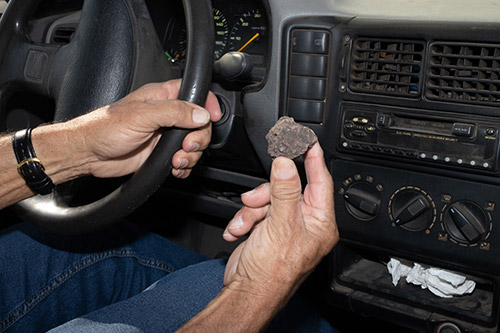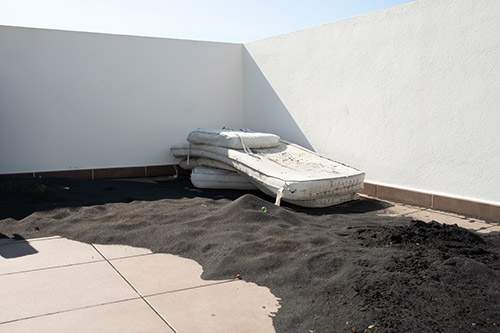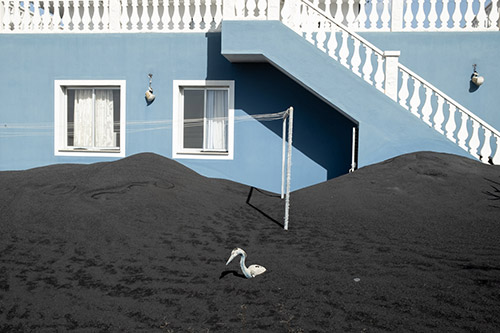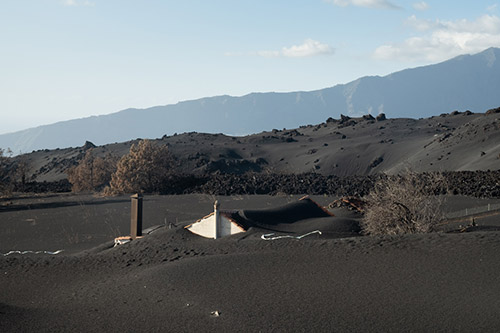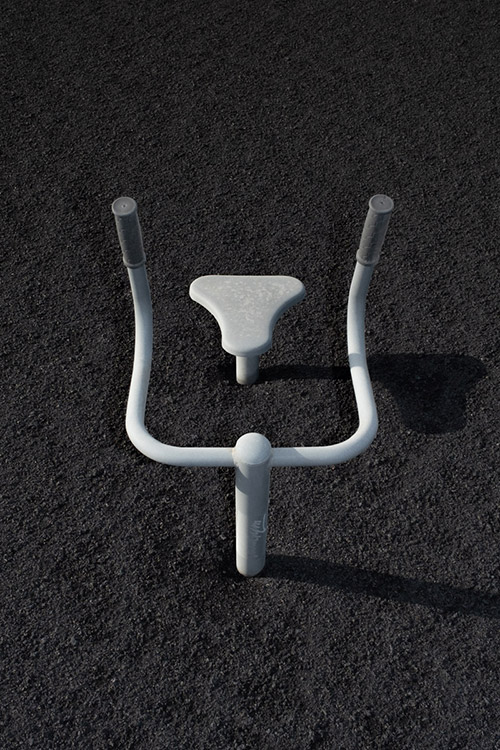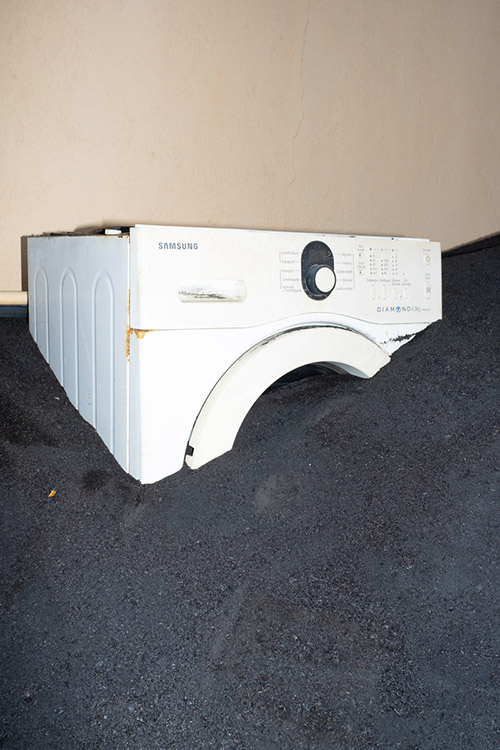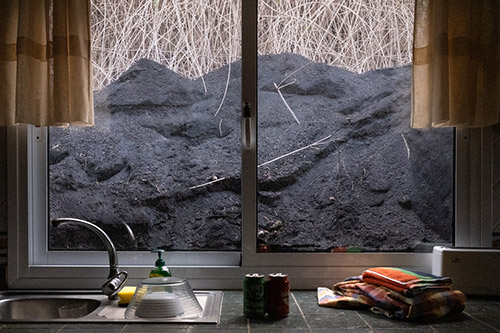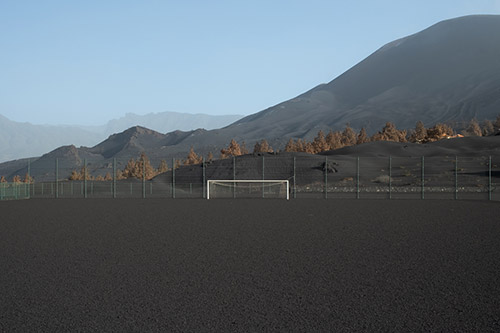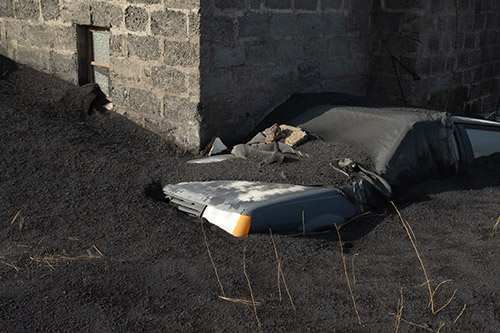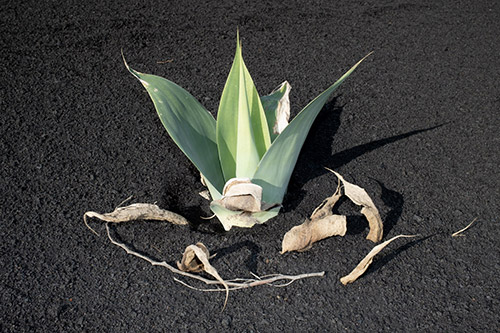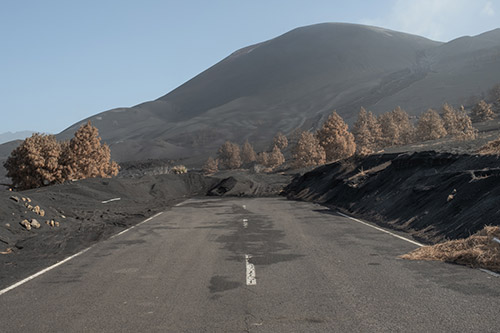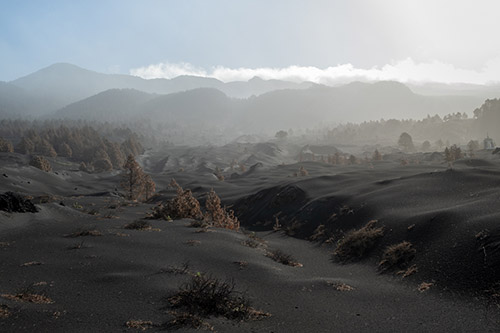featured artist
Kinga Wrona — 85
Natural processes are the endless interactions that shape our planet and support life. From the catastrophic (wildfires, volcanoes, tidal waves) to the microscopic (the formation of mycorrhizal networks), myriad natural processes take place around us every day. Some processes transform land overnight, and others take millennia to become detectable. Each leaves an individual fingerprint on our natural world. They make life happen. They are life happening” (F. Southgate, RewildingBritain)
When it comes to question about how the volcanos work, practically everything is a mystery. Signals may appear before the eruption, but it is never certain it will occur. It is almost impossible to determine the time when the eruption starts and the moment when magma becomes unstable or predict the intensity of eruption. Volcanoes symbolize the duality of destructive force and the new beginning. Spanish Canary Island ,la Palma, only exists because of volcanic eruption built this land long time ago, forming the archipelago known as the Canary Islands. In 2021, during 85 days the volcano Cumbre Vieja on La Palma has been active. The eruption was the longest in the history of the island and the most destructive of last century in Europe. The volcano, which has been declared extinct, came into light changing the island and people’s lives irreversibly at the same time demonstrating man's powerlessness against element. Fascinated by this natural phenomenon but also interested in the relationship of the island's inhabitants with the environment and the volcano itself, I traveled to la Palma in 2022 twice. During my trips, I experienced how extremely close and inseparable is relationship of human and nature and at the same time how fragile is the environment shaped and managed by man. What I found unique was also the approach to life of the local habitants of the island and their great humility towards the volcano. Even in such a difficult situation I heard from them: "You know it is a great tragedy, but volcano was first here, gave us a land for a living, later we came, we have to remember it and respect it" (...) „Living here on a volcanic island is a love - hate relation simultaneously” - I heard.
Kinga Wrona is Polish documentary photographer whose work explores the relationship between human and nature in aspect of climate change, natural disaster or environmental degradation. She is an artist selected as a finalist of Paris Photo Carte Blanche in 2024 and nominated to FUTURES (emerging photographers platform) in 2023. Her works have been exhibited, among others, during Head On Festival 2024 (Sydney, Australia), Kranj Foto Festival 2024 (Kranj, Slovenia); Festival Circulacion (S) 2023 Paris (France); Outside the walls, Paris Metro Stations, France, 2023; Daegu Photo Biennale, 2023 (South Korea); "A sense of place,” Bpart Gallery 2023, Berlin (Germany). Her project 85 has been projected during Les Rencontres d’ Arles 2024 at Fon-dation Manuel Ortiz. She has published among others in Revue EPIC, Polka magazine (online), PUBLICO (online), The Calvert Journal, Tagebuch, National Geographic Polska and New York Post.
For more information:
Visit: www.kingawrona.com
Read the interview with Kinga Wrona

